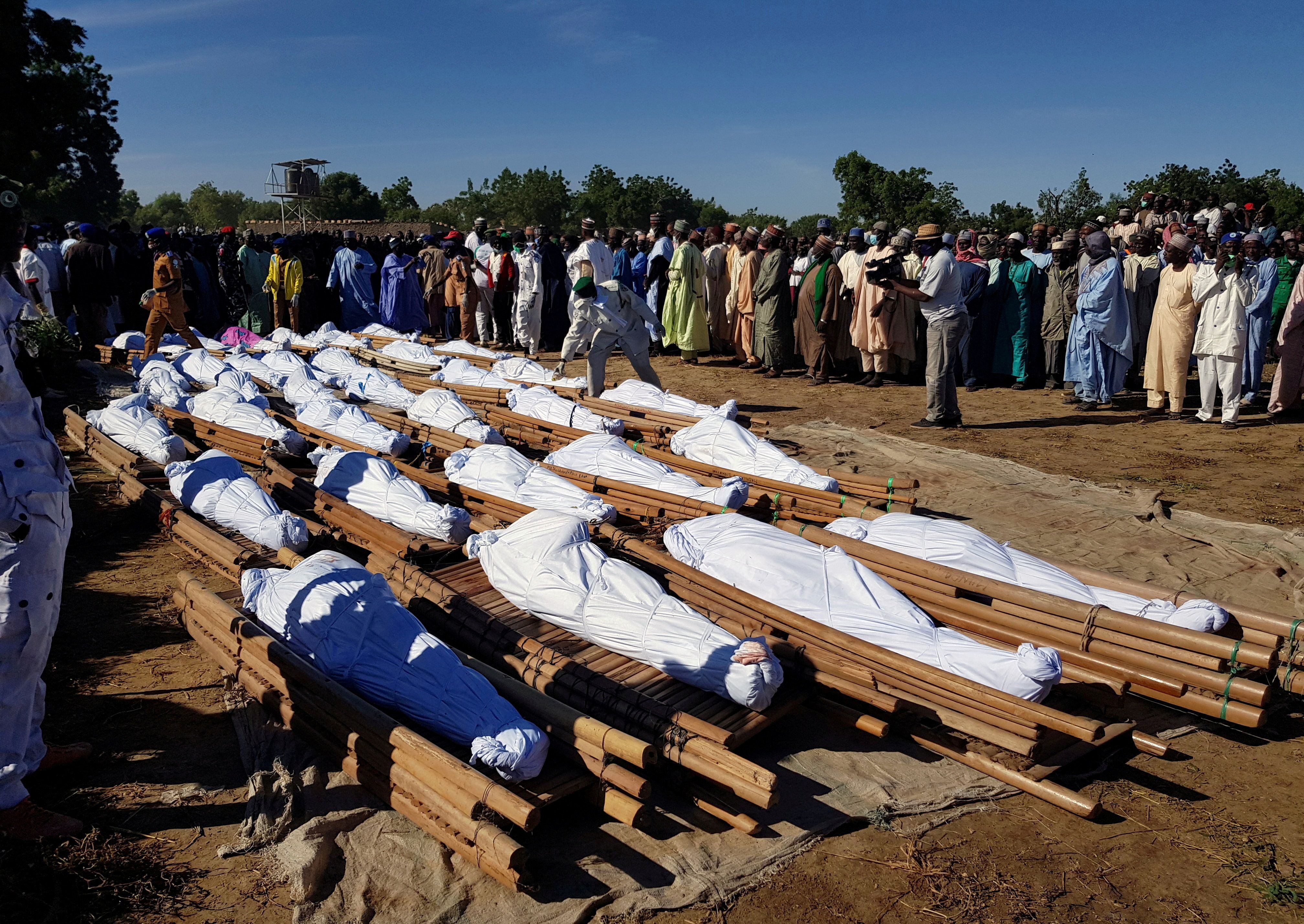News
November 30, 2020
110: At least 110 people were killed in Nigeria's conflict-ridden Borno state on Saturday, when armed men attacked agricultural workers as they tended their fields. No one has yet claimed responsibility for the brutal attack, but analysts say the assault was likely the work of Boko Haram or Islamic State-linked groups that have gained a foothold in the Sahel region in recent years.
300: Police detained more than 300 anti-government protesters in Minsk, Belarus' capital, on Sunday, as part of a city-wide rally dubbed the "march of the neighbors." The demonstrators, who have been demanding the resignation of President Alexander Lukashenko since he won a sixth term in rigged elections back in August, have been changing tactics in recent weeks because of the heavy police crackdown. They're now gathering in smaller groups across the capital to avoid authorities.
30,000: After completing the final stage of its late-stage coronavirus drug trial, which involved giving either a COVID-19 vaccine or a placebo drug to 30,000 volunteers, Moderna pharmaceutical company has filed for an emergency authorization with the US Food and Drug administration. Moderna says the drug yielded promising results for different ages, races, ethnicities, and genders. If approved, the company could start distributing the drug in the US in a few weeks.
13: A year after a deadly volcanic eruption on New Zealand's White Island killed scores of people, authorities in New Zealand have charged 13 parties (organizations and individuals) for failing to safeguard the health and safety of the island's visitors and workers. Findings suggest that relevant government agencies failed to act despite warning signs of an imminent eruption that could prove fatal.
More For You
- YouTube
In this Quick Take, Ian Bremmer unpacks the Trump administration’s new national security strategy, particularly its heightened focus on Europe.
Most Popular
- YouTube
Is the AI jobs apocalypse upon us? On Ian Explains, Ian Bremmer breaks down the confusing indicators in today’s labor market and how both efficiency gains as well as displacement from AI will affect the global workforce.
Members of the Uyghurs diaspora gather in front of Alberta Legislature during the protest 'Stand in Support of East Turkistan' to commemorate the 1990 Barin Uprising, on April 6, 2024, in Edmonton, Alberta, Canada. The East Turkestan independence movement seeks the region's independence for the Uyghur people from China. They advocate renaming the region from Xinjiang to East Turkestan, its historical name.
Photo by Artur Widak/NurPhoto
Remember Xinjiang? There was a time, not long ago, when China’s crackdown on the Uyghurs, a Muslim minority group living in Xinjiang province in Northwestern China, was a hot topic. But these days the attention has faded.
GZERO Media is seeking a video producer with strong writing skills and a passion for global affairs. He/She/They will have an opportunity to work with a growing team of talented journalists, producers, and editors crafting unbiased and compelling geopolitical content. This position will last approximately four months beginning in January 2026.
© 2025 GZERO Media. All Rights Reserved | A Eurasia Group media company.
